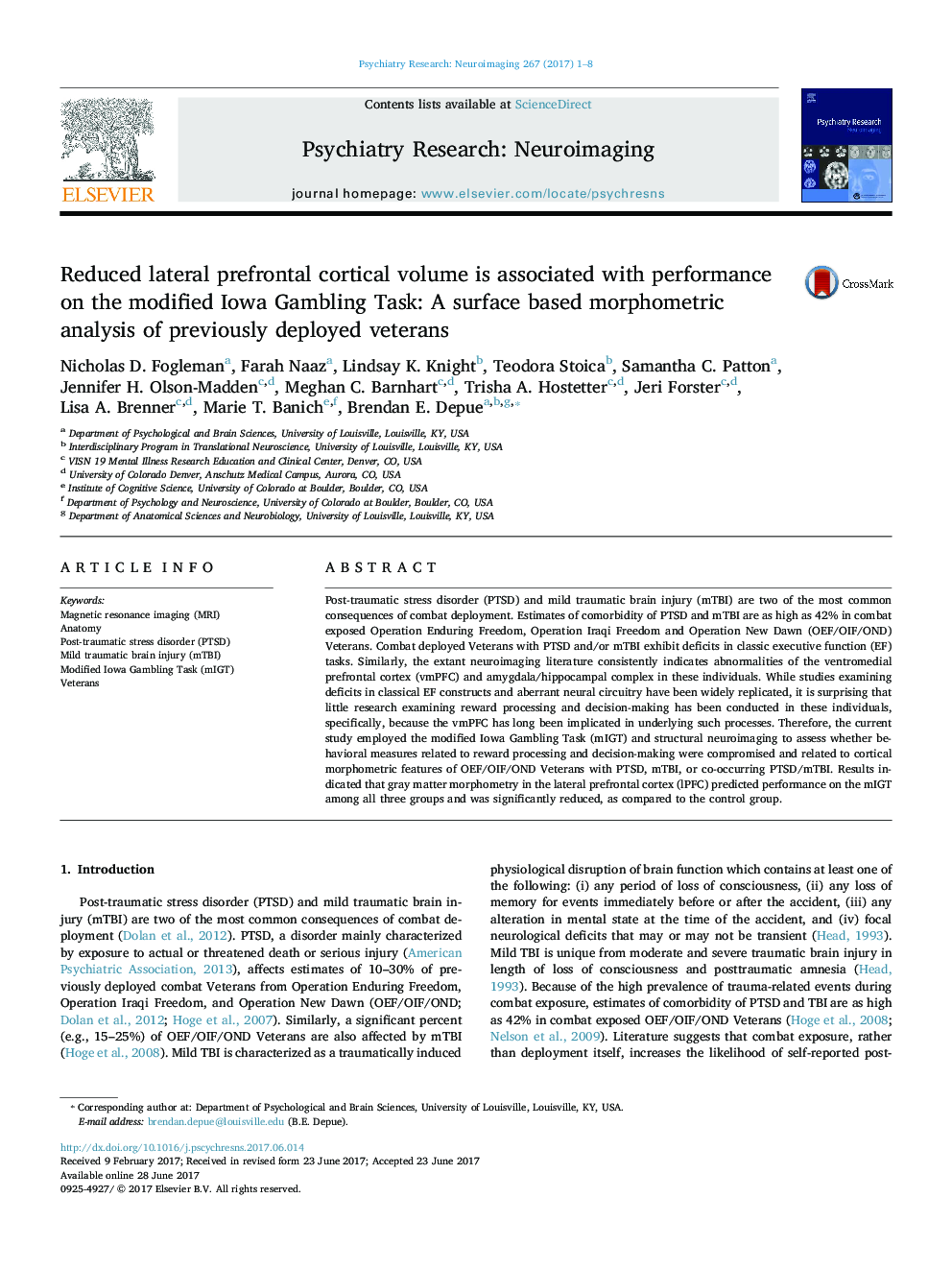| Article ID | Journal | Published Year | Pages | File Type |
|---|---|---|---|---|
| 4933958 | Psychiatry Research: Neuroimaging | 2017 | 8 Pages |
Abstract
Post-traumatic stress disorder (PTSD) and mild traumatic brain injury (mTBI) are two of the most common consequences of combat deployment. Estimates of comorbidity of PTSD and mTBI are as high as 42% in combat exposed Operation Enduring Freedom, Operation Iraqi Freedom and Operation New Dawn (OEF/OIF/OND) Veterans. Combat deployed Veterans with PTSD and/or mTBI exhibit deficits in classic executive function (EF) tasks. Similarly, the extant neuroimaging literature consistently indicates abnormalities of the ventromedial prefrontal cortex (vmPFC) and amygdala/hippocampal complex in these individuals. While studies examining deficits in classical EF constructs and aberrant neural circuitry have been widely replicated, it is surprising that little research examining reward processing and decision-making has been conducted in these individuals, specifically, because the vmPFC has long been implicated in underlying such processes. Therefore, the current study employed the modified Iowa Gambling Task (mIGT) and structural neuroimaging to assess whether behavioral measures related to reward processing and decision-making were compromised and related to cortical morphometric features of OEF/OIF/OND Veterans with PTSD, mTBI, or co-occurring PTSD/mTBI. Results indicated that gray matter morphometry in the lateral prefrontal cortex (lPFC) predicted performance on the mIGT among all three groups and was significantly reduced, as compared to the control group.
Keywords
Related Topics
Life Sciences
Neuroscience
Biological Psychiatry
Authors
Nicholas D. Fogleman, Farah Naaz, Lindsay K. Knight, Teodora Stoica, Samantha C. Patton, Jennifer H. Olson-Madden, Meghan C. Barnhart, Trisha A. Hostetter, Jeri Forster, Lisa A. Brenner, Marie T. Banich, Brendan E. Depue,
